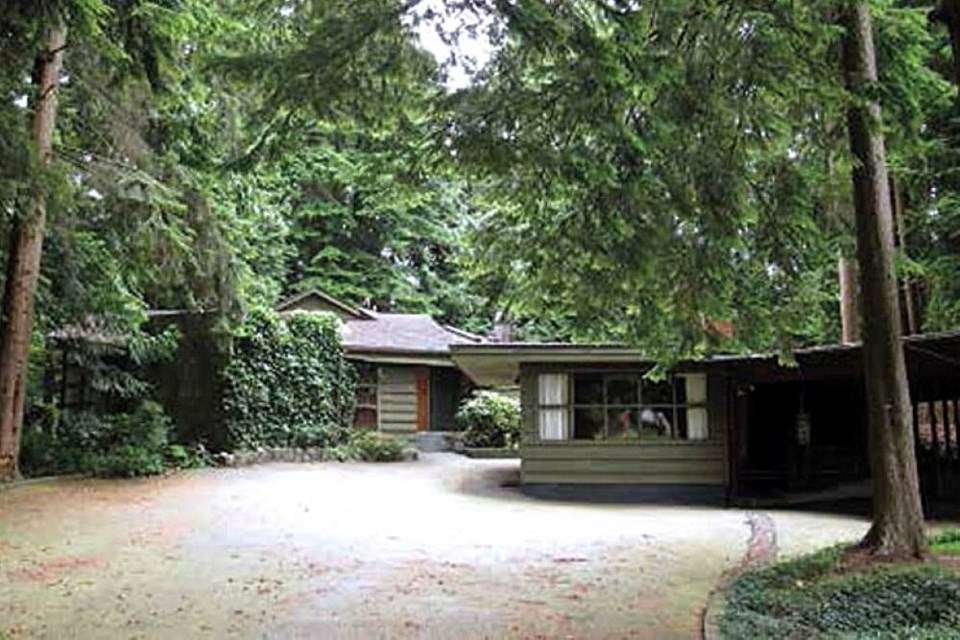Every time a heritage home on the North Shore is spared from the wrecking ball, an angel gets its wings.
At least, that’s the feeling you get from a segment of the community that has dedicated itself to preserving the structures tied to the region’s architectural identity.
As historic homes have fallen or faced uncertain futures, concerned citizens have banded together to lobby local government. Municipal heritage advisory committees have been instrumental, especially in recent years, at cataloguing heritage homes while convincing council to craft policy that makes it harder or less desirable for developers to tear them down.
At an annual meeting Jan. 17, the three heritage committees from North and West Vancouver met to compare notes on the status of heritage preservation and look for opportunities to boost each other's efforts.
Chris Wilkinson, chair of North Vancouver city’s committee, mentioned that there’s a new draft development incentive policy that’s going to be presented to council on March 6. He said the proposed policy looks at density bonusing, bylaw variances, subdivision and additional principal dwellings as ways to incentivize conservation.
Discussed near the top of the meeting was the need for more reflection on the fact that the municipalities reside on the traditional, unceded territories of the Sḵwx̱wú7mesh (Squamish), Tsleil-Waututh and xʷməθkʷəy̓əm (Musqueam) First Nations.
“That’s something that’s largely omitted from our collective heritage programs and something that all three should recognize, [and it would] be appropriate to improve upon.”
While heritage incentives are in place today, there was agreement that more are needed, and not just for developers.
“While it’s really nice to have incentives for the development community that wants to add density or subdivide land, there needs to also be incentives for homeowners that is easy to access,” Wilkinson said. Painting, roof repairs and other necessary updates all add up.
“Regular maintenance on heritage homes is expensive,” he said. “It’s important so that those homes stand the test of time and don’t get into a state of disrepair, and then over years inch towards potential demolition.”
Currently, only the District of North Vancouver has a heritage grant program. Wilkinson noted that there will never be parity across the municipalities, but grants could be one area that is adopted across the Shore.
Does heritage preservation need more carrot or stick?
Wilkinson, who’s director of development with Darwin Properties, said that clearer policy around how a community supports heritage could improve preservation as well.
“So if you’re looking at purchasing a lot with a heritage home you know, it’s much easier to say, ‘No, the council who was elected by the community has adopted this policy, and I’m comfortable following this policy and presenting a rezoning application or development application to council in line with that policy,” he said.
Clearer policy removes risk, Wilkinson added, and leads to developments more in line with what the community had asked for. When clear policy is lacking, developers have to have more individual conversations.
It’s easier when there’s a policy that isn’t tied to one application, he said, not unlike a an official community plan, “where it’s like: if you wanted to put a tower up way off from a designated town centre, that flies in the face of what the community’s values are – you redevelop property in locations that make sense aligned with policy, and then generally everyone is more supportive,” said Wilkinson.
But in many cases incentives, or even penalties, aren’t enough to stop heritage homes from being bulldozed when developers stand to make big profits by rebuilding.
Wilkinson said there needs to be a balance of carrots and sticks, “and I think if the carrots are working well enough, you’re going to need fewer sticks.”
Hypothetically, if the development incentives are strong enough and the levels of protection reflect the importance of these homes, he said, hopefully you never get to a situation where someone thinks they can buy a house property and ignore heritage policy.
“It’s really sad, given the number of opportunities that exist for builders and developers to buy land,” Wilkinson continued. “There are lots of properties out there that don’t have heritage buildings on them.”
This year’s provincial Heritage Week runs Feb. 20-26.




